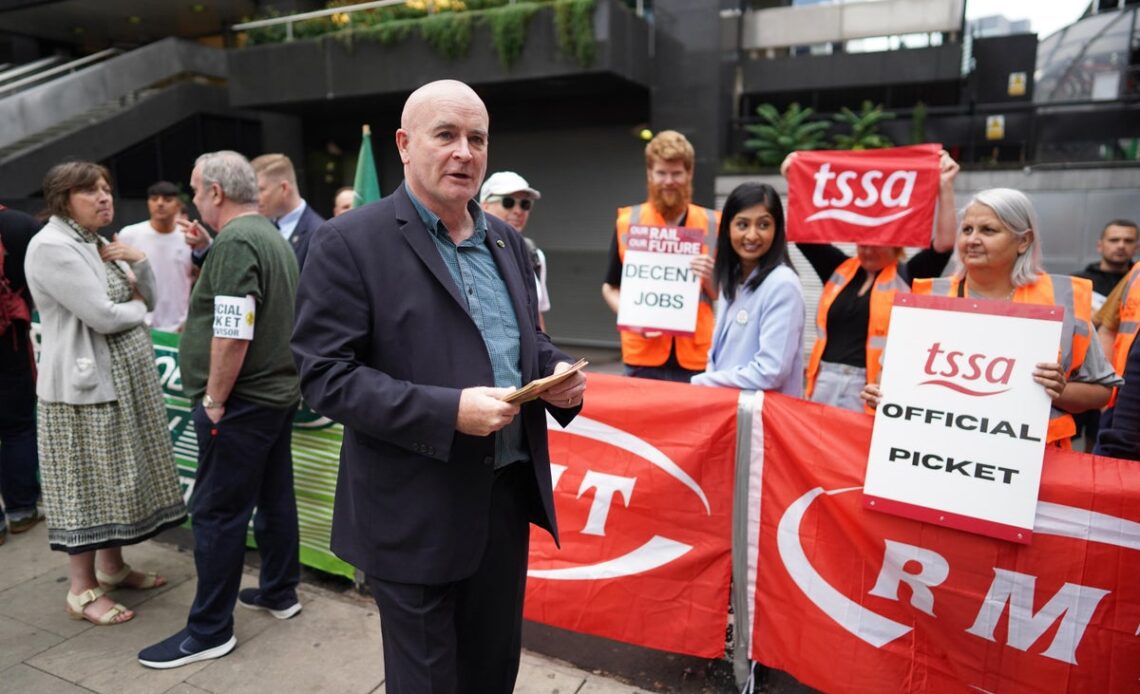As four more days of disruption across the rail network in Great Britain begins, a war of words between management and unions has intensified.
Around 45,000 members of the RMT and TSSA unions working for Network Rail and numerous train operators have walked out as part of a long and bitter dispute over pay and conditions.
Only one in five of the normal daily trains is running today, with no service at all on half of the network.
The chief executive of Network Rail has expressed growing frustration with the progress of talks with the unions. Speaking on BBCToday, Andrew Haines said: “Slow negotiations, painful negotiations, moving all over the place.
“Absolute lack of clarity on what it would take for this strike to be called off. Shifting goal posts.
“We’re desperate to bring this to a resolution in a way that’s affordable for the country.”
“This is the biggest strike that we’ve seen for perhaps 30 years on the railway and I think that’s because the employers – myself and the train operators, supported by the government – are saying that the economic crisis which Covid has precipitated demands that we modernise.
“If the way the unions react when we asked to modernise is they call the biggest strike on the railway for 30 years, then that is not a reason for us to not want to modernise. It demonstrates, maybe, that that modernisation is long overdue.”
But Mick Lynch, general secretary of the main rail union, the RMT, told ITV Good Morning Britain: “We work with the negotiators, Andrew Haines’s team, and we work with the train operating companies’ senior people.
“We don’t want to cause pain, we don’t want disruption. We want a settlement to the issues in this dispute which are based around job security, conditions of service and pay, and of course in the train operating companies we’ve got an enormous attack on our pension scheme.
“We’ve had discussions this week. But the gap between us is still there. We’ve got to find a way to bridge that.
“But I fear that because of the political interference that’s happening with the Department for Transport and the Treasury we’re not able to do that.”
The Department for Transport (DfT), meanwhie, accused rail unions of inflicting misery of travellers rather than modernising.
A DfT spokesperson said: “Yet again, for the sixth time since June, union leaders are opting to inflict misery and disrupt the day-to-day lives of millions instead of working with industry to agree a…
Click Here to Read the Full Original Article at The Independent Travel…
